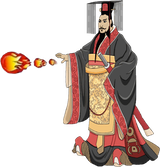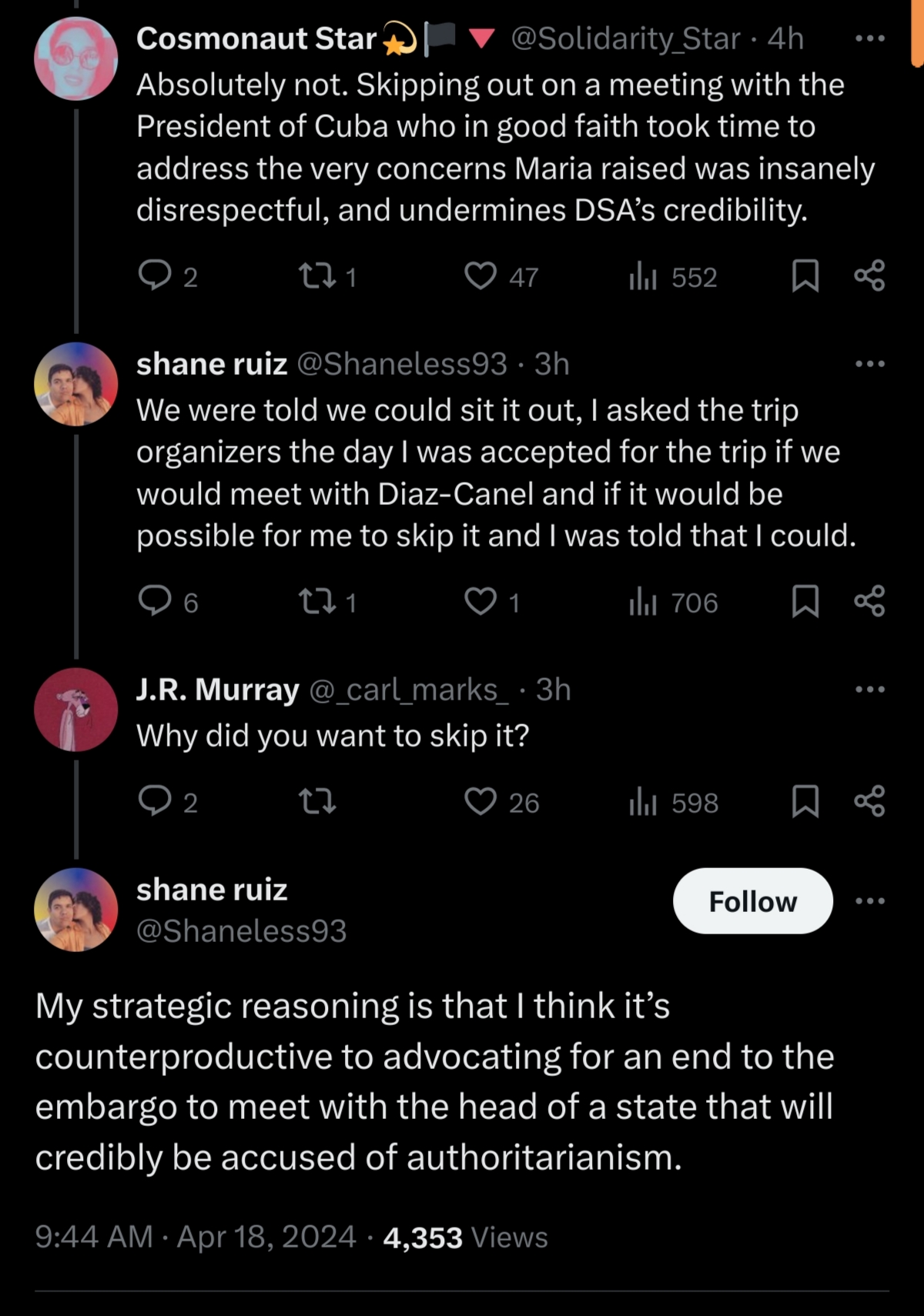

Honestly its rude to be invited by a country to meet their president who decided to respond to your criticisms of their administration only to not show up and go meet the opposition.
Being invided and then no showing shows complete disregard to basic diplomatic Etiquette since it was a mission to show solidarity against the embargo
Bonus socdems being cringe part 4.5: about another member that didnt show up to the presidential meeting

Deeply unserious people


Like what?
edit:
You see, this good thing they did, is actually bad.
Earlier in the piece:
Another GOOD THING BAD
Her criticism at the end:
The criticism is self defeating. She clearly admits she had the opportunity to ask questions. Then she dismisses their wins for playing within their organizing conditions
edit:
More of Maria being able to ask questions and have a dialogue
She did not like his response, which is fair but did not provide proof of what she said either, which she certainly could have in a blog post.
Who the fuck do these people think they are?
NATO leftists who think that their identity as an American citizen makes their opinion worthwhile. Fucking hate these scum
Bootlicking catholic fucking church to own the
commies“authoritarians” 🤡deleted by creator